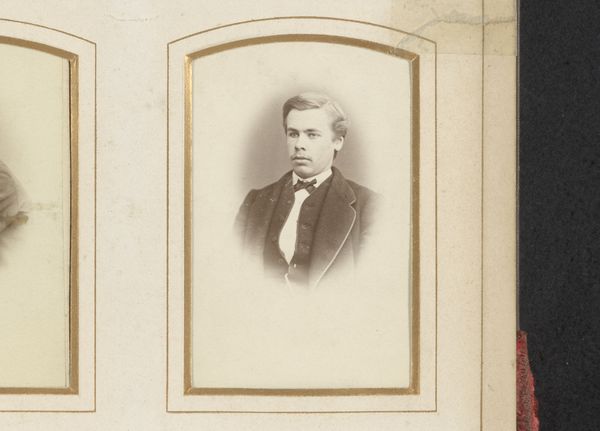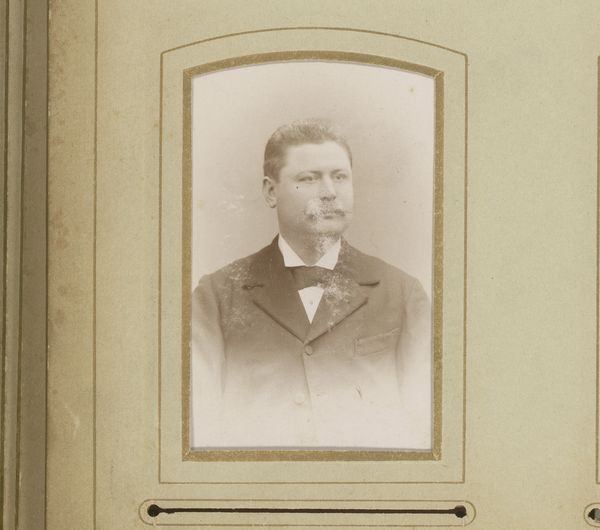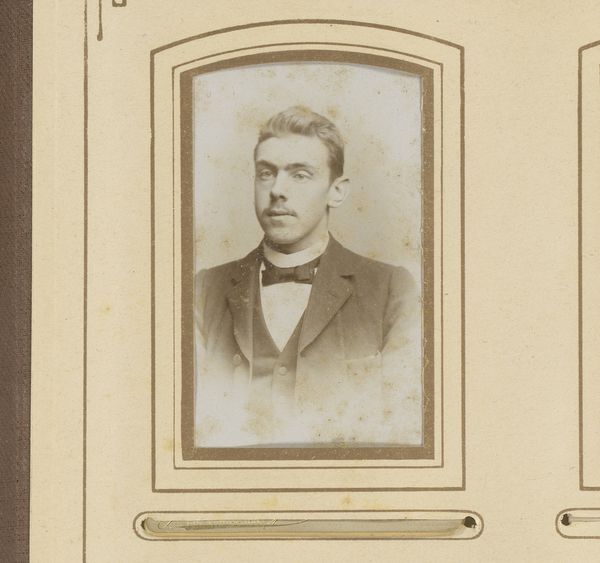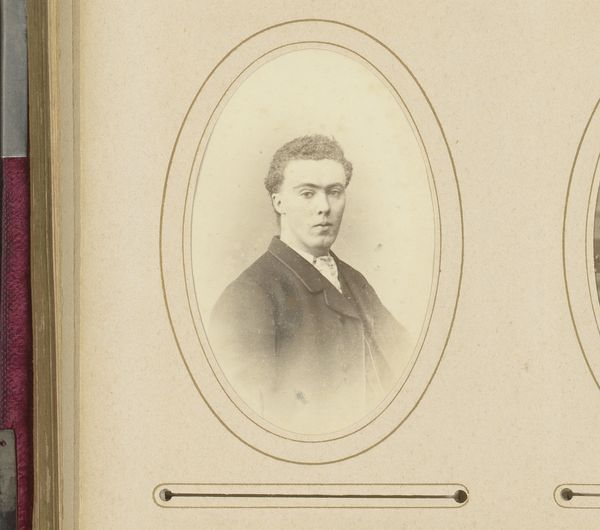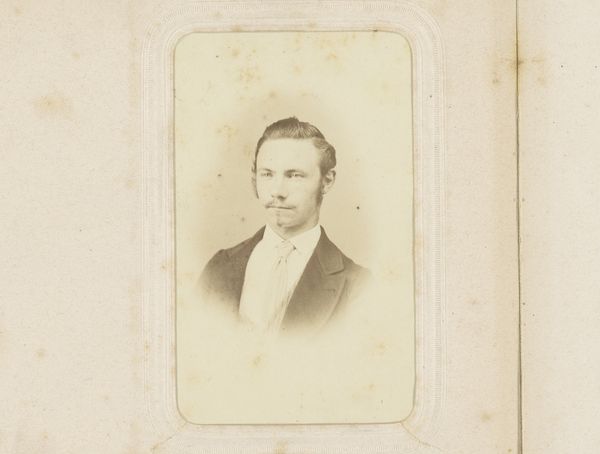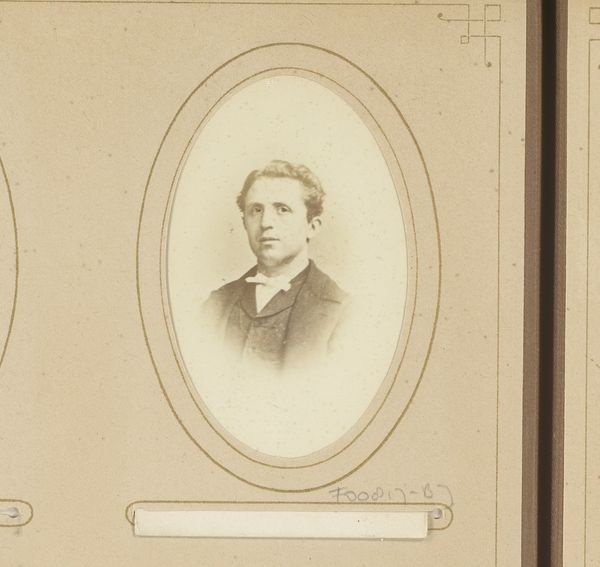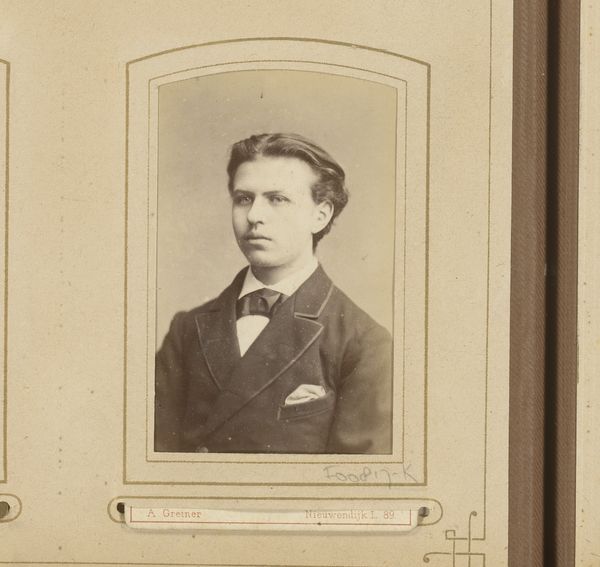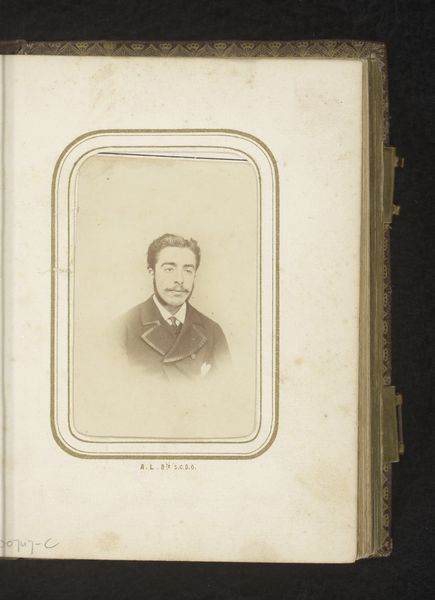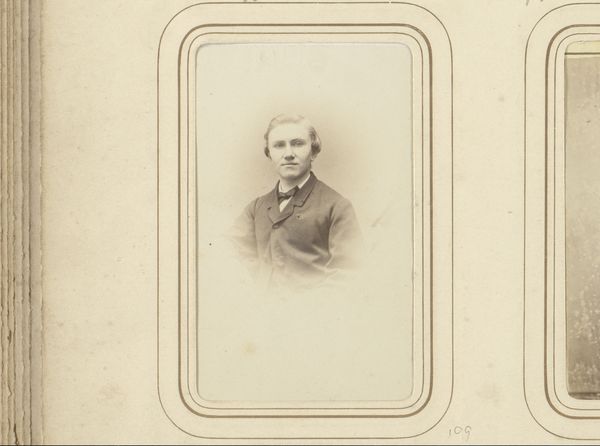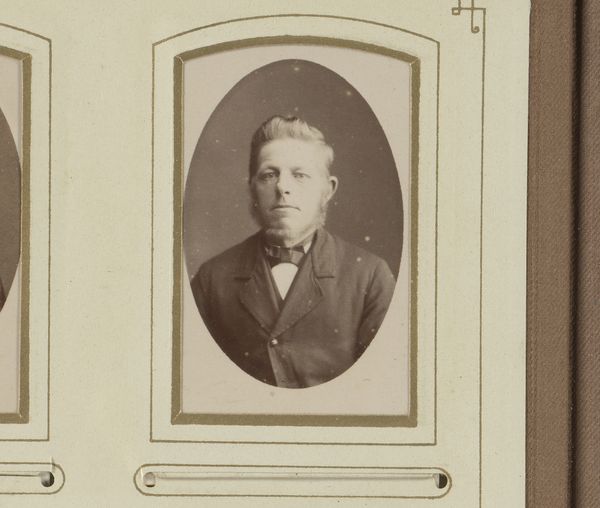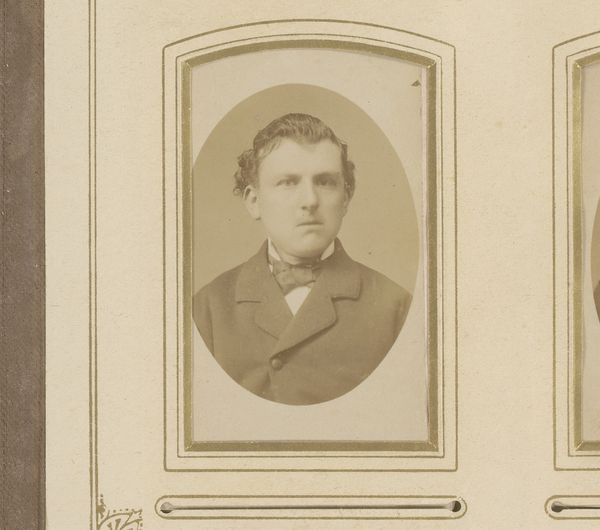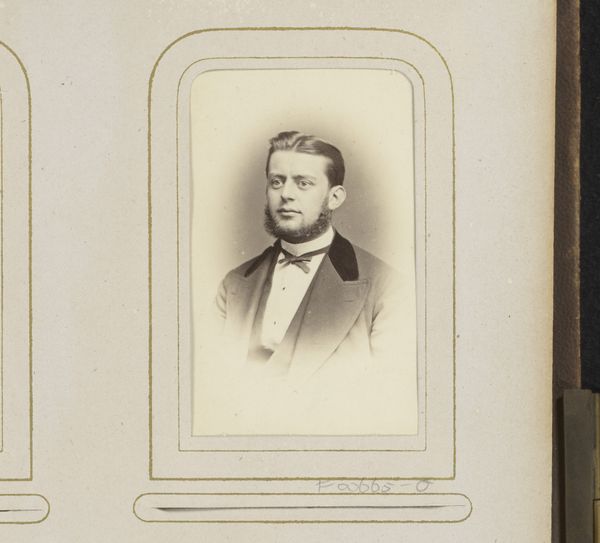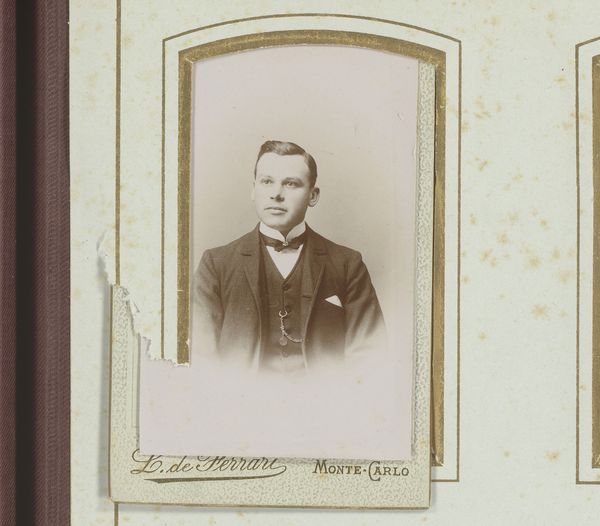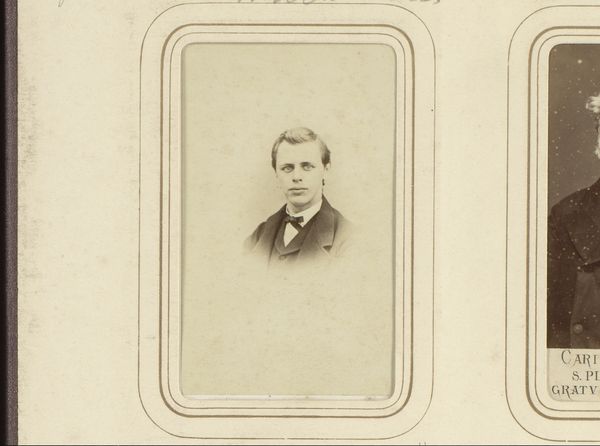
photography, gelatin-silver-print
#
portrait
#
16_19th-century
#
pictorialism
#
photography
#
historical photography
#
gelatin-silver-print
#
19th century
Dimensions: height 82 mm, width 51 mm
Copyright: Rijks Museum: Open Domain
Carl F. Arnecke Jr. created this portrait of a man using photography, a relatively new medium at the time. Photography's emergence in the 19th century democratized portraiture. No longer the exclusive domain of the wealthy who could afford painted portraits, photography offered access to a wider range of social classes. This photograph, likely a collodion print, involved a labor-intensive process. The photographer had to prepare, sensitize, expose, and develop the glass plate negative, and then print the image onto paper. The resulting sepia tone, a consequence of the chemical process, gives the image a sense of nostalgia. The photographer may have had an understanding of chemistry, optics, and darkroom practices. This portrait signifies a shift in artistic production, challenging traditional notions of art and craft. It invites us to consider the social and economic factors that influence artistic expression, underscoring the value of accessibility and skilled work in photographic image-making.
Comments
No comments
Be the first to comment and join the conversation on the ultimate creative platform.
